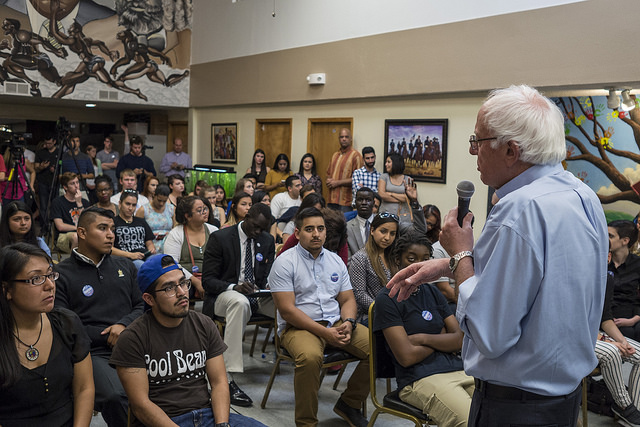Historic tradition has given birth to the superstition among the French farmers that a man named Napoleon would restore to them all manner of glory. Now, then, an individual turns up, who gives himself out as that man because, obedient to the “Code Napoleon,” which provides that “La recherche de la paternite est interdite,” he carries the name of Napoleon.After a vagabondage of twenty years, and a series of grotesque adventures, the myth is verified, and that man becomes the Emperor of the French. The rooted thought of the Nephew becomes a reality because it coincided with the rooted thought of the most numerous class among the French.
“But,” I shall be objected to, “what about the farmers’ uprisings over half France, the raids of the Army upon the farmers, the wholesale imprisonment and transportation of farmers?”
Indeed, since Louis XIV, France has not experienced such persecutions of the farmer on the ground of his demagogic machinations.
But this should be well understood: The Bonaparte dynasty does not represent the revolutionary, it represents the conservative farmer; it does not represent the farmer, who presses beyond his own economic conditions, his little allotment of land it represents him rather who would confirm these conditions; it does not represent the rural population, that, thanks to its own inherent energy, wishes, jointly with the cities to overthrow the old order, it represents, on the contrary, the rural population that, hide-bound in the old order, seeks to see itself, together with its allotments, saved and favored by the ghost of the Empire; it represents, not the intelligence, but the superstition of the farmer; not his judgment, but his bias; not his future, but his past; not his modern Cevennes; but his modern Vendee.

The three years’ severe rule of the parliamentary republic had freed a part of the French farmers from the Napoleonic illusion, and, though even only superficially; had revolutionized them The bourgeoisie threw them, however, violently back every time that they set themselves in motion. Under the parliamentary republic, the modern wrestled with the traditional consciousness of the French farmer.
The process went on in the form of a continuous struggle between the school teachers and the parsons;—the bourgeoisie knocked the school teachers down. For the first time, the farmer made an effort to take an independent stand in the government of the country; this manifested itself in the prolonged conflicts of the Mayors with the Prefects;—the bourgeoisie deposed the Mayors.
Finally, during period of the parliamentary republic, the farmers of several localities rose against their own product, the Army;—the bourgeoisie punished them with states of siege and executions. And this is the identical bourgeoisie, that now howls over the “stupidity of the masses,” over the “vile multitude,” which, it claims, betrayed it to Bonaparte. Itself has violently fortified the imperialism of the farmer class; it firmly maintained the conditions that Constitute the birth-place of this farmer-religion. Indeed, the bourgeoisie has every reason to fear the stupidity of the masses—so long as they remain conservative; and their intelligence—so soon as they become revolutionary.
In the revolts that took place after the “coup d’etat” a part of the French farmers protested, arms in hand, against their own vote of December 10, 1848. The school house had, since 1848, sharpened their wits. But they had bound themselves over to the nether world of history, and history kept them to their word. Moreover, the majority of this population was still so full of prejudices that, just in the “reddest” Departments, it voted openly for Bonaparte. The National Assembly prevented, as it thought, this population from walking; the farmers now snapped the fetters which the cities had struck upon the will of the country districts. In some places they even indulged the grotesque hallucination of a “Convention together with a Napoleon.”
After the first revolution had converted the serf farmers into freeholders, Napoleon fixed and regulated the conditions under which, unmolested, they could exploit the soil of France, that had just fallen into their hands, and expiate the youthful passion for property. But that which now bears the French farmer down is that very allotment of land, it is the partition of the soil, the form of ownership, which Napoleon had consolidated. These are the material condition that turned French feudal peasant into a small or allotment farmer, and Napoleon into an Emperor.

Two generations have sufficed to produce the inevitable result the progressive deterioration of agriculture, and the progressive encumbering of the agriculturist. The “Napoleonic” form of ownership, which, at the beginning of the nineteenth century was the condition for the emancipation and enrichment of the French rural population, has, in the course of the century, developed into the law of their enslavement and pauperism.
Now, then, this very law is the first of the “idees Napoleoniennes,” which the second Bonaparte must uphold. If he still shares with the farmers the illusion of seeking, not in the system of the small allotment itself, but outside of that system, in the influence of secondary conditions, the cause of their ruin, his experiments are bound to burst like soap-bubbles against the modern system of production.
The economic development of the allotment system has turned bottom upward the relation of the farmer to the other classes of society. Under Napoleon, the parceling out of the agricultural lands into small allotments supplemented in the country the free competition and the incipient large production of the cities. The farmer class was the ubiquitous protest against the aristocracy of land, just then overthrown.
The roots that the system of small allotments cast into the soil of France, deprived feudalism of all nutriment. Its boundary-posts constituted the natural buttress of the bourgeoisie against every stroke of the old overlords. But in the course of the nineteenth century, the City Usurer stepped into the shoes of the Feudal Lord, the Mortgage substituted the Feudal Duties formerly yielded by the soil, bourgeois Capital took the place of the aristocracy of Landed Property.
The former allotments are now only a pretext that allows the capitalist class to draw profit, interest and rent from agricultural lands, and to leave to the farmer himself the task of seeing to it that he knock out his wages.
Adapted from The 18th Brumaire of Louis Bonaparte, by Karl Marx. Published under a Creative Commons license, courtesy of Project Gutenberg. Photographs by Joel Schalit.





